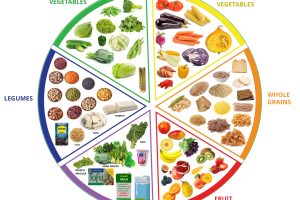The Ultimate Guide to Maintaining a Balanced Diet

Importance of a Balanced Diet
A balanced diet is vital for maintaining overall health and well-being. It provides the body with essential nutrients necessary for optimal functioning, supporting everything from the immune system to energy levels. Those who commit to a well-rounded nutritional regimen often experience increased energy, improved mood, and enhanced mental clarity. Just think back to a time when you didn’t eat well; it often leads to fatigue and a lack of motivation. By prioritizing a balanced diet, individuals can prevent various health issues, including obesity, diabetes, and heart disease. Consider the busy professional who skips meals and lives off coffee and takeout. Over time, this hectic schedule takes a toll—both physically and mentally. Incorporating a balanced diet into one’s lifestyle isn’t just a health choice; it’s a long-term investment in one’s quality of life.
- The Ultimate Guide to Maintaining a Balanced Diet
- Importance of a Balanced Diet
- Key Components of a Balanced Diet
- Understanding Macronutrients
- Carbohydrates and their Role
- Proteins and their Importance
- Essential Micronutrients
- Vitamins for Overall Health
- Minerals for Body Functioning
- Hydration and Its Significance
- Benefits of Staying Hydrated
- Tips for Drinking Enough Water
- Planning Balanced Meals
- Portion Control and Serving Sizes
- Meal Prepping for Success
Key Components of a Balanced Diet
To achieve that balance, it’s essential to include a variety of food groups. Here are the key components:
- Carbohydrates: These are the body’s primary energy source and should make up about 45-65% of your daily calorie intake. Whole grains, fruits, and vegetables are excellent sources.
- Proteins: Important for muscle and tissue repair, protein should comprise around 10-35% of your daily diet. Lean meats, fish, beans, and nuts are great choices.
- Fats: Healthy fats are crucial for nutrient absorption and hormone production. Aim for healthy sources like avocados, olive oil, and fatty fish, keeping their consumption at about 20-35% of your diet.
- Vitamins and Minerals: These micronutrients support a myriad of bodily functions. It’s necessary to consume a range of colorful fruits and vegetables to meet these needs.
- Water: Often overlooked, proper hydration is essential in facilitating all bodily functions.
Understanding these key components helps individuals make informed dietary choices, leading to sustained health and vitality. With each meal planned to encompass all these elements, one can truly thrive.
Understanding Macronutrients
Carbohydrates and their Role
Carbohydrates often get a bad rap in diet culture, but they are, in fact, a crucial component of a balanced diet. Think of carbohydrates as the body’s main fuel source. Imagine trying to run a marathon without the energy supply of a nutritious breakfast or a pre-race snack; it simply wouldn’t work! Carbohydrates come in two forms: simple and complex.
- Simple Carbohydrates: These are sugars found in candies, sodas, and many processed foods. While they provide quick energy, they can also lead to energy crashes, leaving you feeling fatigued.
- Complex Carbohydrates: Foods like whole grains, legumes, and vegetables fall into this category. They are digested slowly, providing sustained energy and helping you feel full longer.
Incorporating a variety of carbohydrates into daily meals can lead to improved endurance and focus during daily activities. For instance, enjoying oatmeal topped with berries for breakfast not only satisfies hunger but also fuels the day ahead.
Proteins and their Importance
If carbohydrates are the fuel, proteins are the essential building blocks of the body. They play a critical role in repairing tissues, supporting muscle growth, and producing hormones and enzymes. Without enough protein, one may feel weak and fatigued—a lesson learned by many who have adhered to trendy diets lacking in this vital macronutrient. To ensure adequate protein intake, focus on incorporating these sources into meals:
- Lean Meats: Chicken, turkey, and fish are great options.
- Plant-Based Proteins: Beans, lentils, and quinoa provide an excellent alternative for those opting for vegetarian or vegan lifestyles.
- Dairy Products: Greek yogurt and cottage cheese are packed with protein while also offering probiotics for gut health.
A simple weekday meal of grilled chicken with quinoa and steamed broccoli demonstrates how easy it is to consume both protein and carbohydrates together, creating a balanced and satisfying dish that supports overall health. Understanding these macronutrients empowers individuals to cultivate a diet that not only nourishes but also energizes.
Essential Micronutrients
Vitamins for Overall Health
After breaking down the macronutrients, it’s time to shine a spotlight on micronutrients, particularly vitamins, which play vital roles in maintaining health. Vitamins are organic compounds that our bodies need in small quantities to function properly. Each vitamin has unique benefits and contributes to overall wellness. For instance, Vitamin C is well-known for boosting the immune system. A personal experience can illustrate this—when one winter, a friend started drinking orange juice daily, they noticed fewer colds, an anecdote that highlights the power of this vitamin. Here are some essential vitamins to consider:
- Vitamin A: Essential for vision and skin health, found in carrots and sweet potatoes.
- B Vitamins: Play a key role in energy production; sources include whole grains, eggs, and leafy greens.
- Vitamin D: Supports bone health and immune function, often absorbed through sunlight; food sources include fatty fish and fortified dairy.
- Vitamin E: Acts as an antioxidant, protecting cells; found in nuts and seeds.
Integrating various fruits and vegetables into the diet is a simple approach to obtaining these vitamins. A colorful salad combines greens, peppers, carrots, and nuts, offering a visual reminder of the nutrients required for vitality.
Minerals for Body Functioning
Minerals, on the other hand, are inorganic substances that are equally crucial for various bodily functions. They aid in everything from bone health to nerve function and are integral to processes such as fluid balance and muscle contractions. Without adequate mineral intake, one might experience fatigue or muscle cramps. Some important minerals include:
- Calcium: Vital for bone health, found in dairy products, leafy greens, and fortified foods.
- Iron: Necessary for oxygen transport in the blood; good sources include red meat, beans, and fortified cereals.
- Magnesium: Supports muscle and nerve function, found in nuts, seeds, and whole grains.
- Potassium: Important for heart health and muscle function, plentiful in bananas, potatoes, and spinach.
A well-rounded diet rich in both vitamins and minerals is essential for sustaining energy levels and maintaining overall health. By paying attention to these micronutrients, individuals can support their bodies effectively, promoting a vibrant and energetic lifestyle.
Hydration and Its Significance
Benefits of Staying Hydrated
After focusing on the critical role of micronutrients, it’s essential to discuss hydration—an often underrated but equally important aspect of a balanced diet. Water is fundamental to every bodily process, and staying hydrated is crucial for maintaining health and well-being. Consider the experience of someone who spent a long day at work without drinking enough water. By the afternoon, they felt sluggish and had difficulty concentrating. The simple act of hydrating could have transformed their day. Staying hydrated can lead to several benefits, including:
- Enhanced Physical Performance: Proper hydration optimizes bodily functions, allowing for better endurance during exercise. Athletes often know the importance of hydration for peak performance.
- Improved Mood and Cognitive Function: Dehydration can lead to irritability and concentration issues. Staying hydrated helps support mental clarity.
- Better Digestion: Water aids in breaking down food, promoting smooth digestion and helping prevent issues like constipation.
- Healthy Skin: Hydrated skin appears plumper and healthier, while dehydration can lead to dryness and flakiness.
Tips for Drinking Enough Water
To reap these hydration benefits, it’s vital to incorporate water intake into a daily routine. Here are several practical tips to help ensure adequate hydration:
- Carry a Water Bottle: Having a reusable water bottle on hand encourages regular sipping throughout the day.
- Set Reminders: Use smartphone alerts or apps that prompt you to drink water, especially during busy days.
- Infuse Water with Flavor: If plain water feels mundane, add slices of fruit, herbs, or cucumber for a refreshing twist.
- Eat Water-Rich Foods: Incorporate fruits and vegetables like cucumbers, watermelon, and oranges that naturally contain high water content.
- Establish a Routine: Create habits, like drinking a glass of water before each meal or after every bathroom break.
- Monitor Intake: Keep track of daily water consumption using a journal or app. Aim for the general guideline of around 8 cups (64 ounces) daily, adjusting based on activity level and climate.
By understanding the significance of hydration and implementing these tips, individuals can enjoy the various benefits associated with staying well-hydrated. A thoughtful approach to water intake will surely enhance overall health and vitality.
Planning Balanced Meals
Portion Control and Serving Sizes
As we shift our focus towards planning balanced meals, one key aspect to consider is portion control. Many individuals struggle with understanding the right serving sizes. Without mindful awareness, it’s easy to consume more than what’s necessary, which can lead to unwanted weight gain and feelings of sluggishness. To illustrate this, think about a dinner plate filled to the brim. It’s tempting to pile on the food when it looks so inviting, but that often results in overeating. Here are some practical strategies to help ensure proper portion sizes:
- Use Smaller Plates: Switching to smaller dinnerware can make portions appear larger, creating a visual cue to eat less.
- Utilize Measuring Tools: While it may seem cumbersome at first, using measuring cups and a kitchen scale can help develop a better understanding of what a proper serving size looks like.
- Read Nutrition Labels: These provide valuable information about serving sizes and help in making informed choices while grocery shopping.
- Be Mindful: Taking a moment to reflect on hunger levels before reaching for seconds can often help curb overeating.
Meal Prepping for Success
Another effective strategy for eating balanced meals is meal prepping. Personally, the experience of preparing meals in advance transformed my week, preventing the last-minute rush to find something healthy to eat. With meal prep, you can conveniently plan meals around balanced nutrition, saving time and reducing stress during busy days. Consider these steps for successful meal prepping:
- Plan a Weekly Menu: Jot down meals for the week, ensuring to include a variety of proteins, carbohydrates, and vegetables.
- Batch Cook: Prepare large quantities of staples like quinoa, brown rice, or roasted vegetables at once. Store them in the fridge for easy access throughout the week.
- Portion out Meals: Use containers to portion meals, making grab-and-go options available for busy days.
- Include Healthy Snacks: Pre-pack snacks like cut fruits, nuts, or yogurt to avoid reaching for unhealthy options when hunger strikes.
- Stay Flexible: While meal prepping provides structure, allow room for adjustments based on cravings or schedule changes.
By focusing on portion control and embracing meal prepping, individuals can take significant steps toward a well-balanced diet. This mindful approach makes it easier to enjoy nutritious meals while maintaining a healthy lifestyle.





